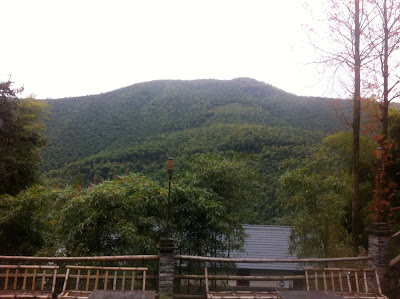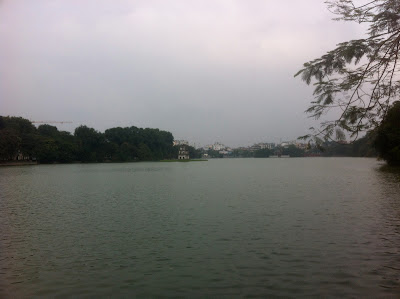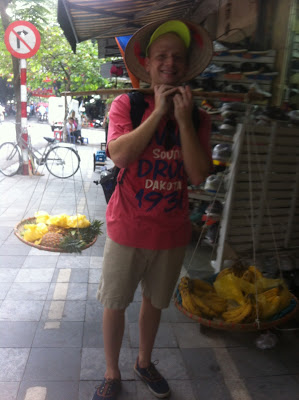Upon further review, however, I'm not so sure it did. One year ago today, I was in New York, getting ready to go out to a party at Union Square Ballroom with a bunch of friends. It seems like...well...about a year ago. And maybe that's because 2012 was probably the most action-packed, event-filled, up-and-down (but mostly up) year of my life. There was just too much that happened for it to have flown by. It's been a while since this blog had a good list, so primarily for my own records, I hereby present Josh's 2012 In Review. The list is in no particular order, and is not nearly exhaustive.
- I spent at least one night in the following places: New York, New York; Washington, D.C.; Omaha, Nebraska; Keystone, South Dakota; Austin, Texas; Nashville, Tennessee; Louisville, Kentucky; Chicago, Illinois; East Jordan, Michigan; Clinton, Connecticut; Shanghai, China; Nanjing, Jiangsu Province, China; Beijing, China; Hanoi, Vietnam; Halong Bay, Vietnam; Houwu Village, Zhejiang Province, China.
- I moved twice -- from Washington to New York, and from New York to Shanghai.
- I attended a baseball game at Wrigley Field
- I toured the United States Naval Observatory (a very underrated activity for those seeking amusement in Washington).
- I ran my personal Triple Crown -- attending the Kentucky Derby, Preakness Stakes, and Belmont Stakes. With me for all three legs were Ben Zachs, Jeremy Perlman, and Michael Moran, with many others along for part of the ride. Unfortunately, I'll Have Another got injured the day before he could run for the Triple Crown, but going to all three races in one year was a sports fan's dream.
- I pulled two all-nighters as a paralgeal, billing 25 hours to a client in each of two 24 hour days (don't ask me how that's possible).
- I went to Mount Rushmore. It's smaller than expected.
- I attended the following concerts: Bruce Springsteen, Radiohead, Kenny Chesney (shown below), the New York Philharmonic, the Washington D.C. National Symphony Orchestra, and (several) shows by the Horde in Beijing and Shanghai, a band of whom I'm an official groupie, and the unofficial manager.
- I helped plan my parents' first trip to China in March 2013.
- I completed my two year stint as a paralegal at Paul, Weiss, learning more and meeting more great people than I thought I would.
- A new tradition was continued at Lake Charlevoix.
- I saw one of my comedic idols, Jerry Seinfeld, live...in Omaha. His first joke? "So what's the deal with Omaha? I'll tell you. It's FLAT! Just FLAT!"
- I turned 24. One-fifth of a century. Makes a guy think. (Some Like It Hot reference).
- I joined a darts team, adding to my resume of things I am not very good at.
- I played golf with my father, my friends, and my friends' fathers.
- I played softball with Vincent Grey, mayor of Washington D.C.
- I went on two mini road trips (significant for someone from New York who barely knows how to drive): from Omaha, NE to Keystone, SD (1150 miles round trip) and from Chicago, IL to East Jordan, MI (700 miles round trip). Shoutouts to Michael Joseph O'Donnell III and Allan Ziegler for accompanying me.
- For the first time ever, I had Thanksgiving dinner with people other than my family. 29 expats gathered in Shanghai, all of them missing home, and managed to have a festive meal and share the plentiful reasons for being thankful.
- I visited Vietnam, exploring the motorbike-filled winding streets of Hanoi and the unique beauty of Halong Bay.
- I discovered the epitome of revisionist history and propaganda at the Hanoi Hilton.
- I voted via absentee ballot for President Barack Obama.
- I watched from afar as the Yankees and Giants both made fools of themselves. But I won my two fantasy football championships, so it's okay.
- I learned that Settlers of Catan, or 卡坦岛, is not only a phenomenon in the US, but one in China as well.
- I played hours (and hours) of Mafia, a campfire game for kids, with a bunch of friends on the beach in Connecticut.
- I applied to law school. And got in.
- I went out drinking with my brother and two cousins, the first time the four of us had been together in about a decade.
- I learned that, if you're quite lucky, the year ends with equal amounts of looking back, fondly and wistfully, at the year past, and looking forward, with eager anticipation, if not a little bit of healthy trepidation about the proverbial what comes next.









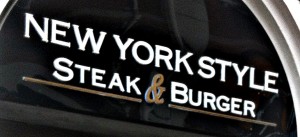
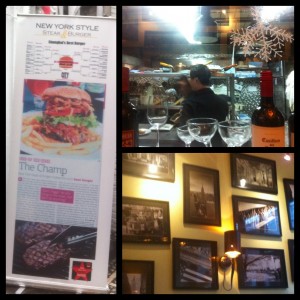
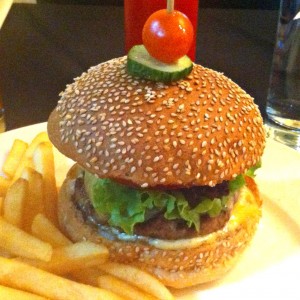
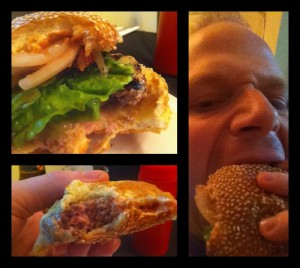









.jpg)


